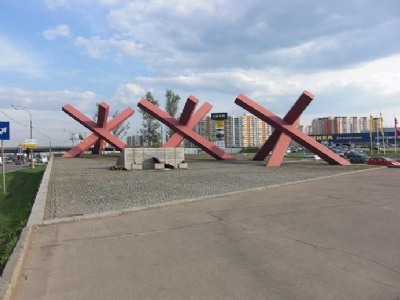Sheremetyevo
About thirty kilometres north of Moscow lies Sheremetyevo and closer than that the german armies never came Moscow. The German offensive (Operation Taifun) against Moscow began in October 1941 and lasted until early January 1942. In October 1941, the situation was serious for the Soviet Union and Stalin ordered Moscow to be prepared for a major German attack. Military servicemen along with civilians were mobilized to build a defensive line around Moscow. Thousands of civilians were evacuated and an evacuation of the Soviet leadership was also planned. Lenin’s embalmed body was also evacuated not to fall into enemy hands. The Germans tried to conquer Moscow by a pincer maneuver from the south and north. Violent fightings raged in the city of Tula (later awarded the title Hero city) south of Moscow. The Soviet Union had also strengthened the defense of Moscow by moving troops from Asia after Stalin recieved confirmed information that Japan did not plan to attack Soviet union in the east. The Combination of new troops, cold weather and stretched out German supply lines contributed to the Germans never getting closer to Moscow than Sheremetyevo. The Germans regained initiative in the spring and summer of 1942 but then it was not Moscow that was the target but the oil fields in the Caucasus.
Current status: Monument (2010).
Location: 55°54'46.6"N 37°24'10.6"E
Get there: Car.
Follow up in books: Braithwaite, Rodric: Moscow 1941 (2006).

The monument is located next to the M 10 main road on the left (from south) just before the exit towards Sheremetyevo airport. The monument consists of three tank obstacles called Spanish riders. For the Germans, it must have been frustrated to be so closed and not being able to concquer it. Inside Moscow there is a large and patriotic museum dedicated to the war against Germany. Every year on May 9th, the victory over Germany is celebrated with a large military parade on Red Square, where the whole city is characterized by celebration. Old decorated war veterans in uniforms walk around in the city and gets an attraction they normally doesn’t get.